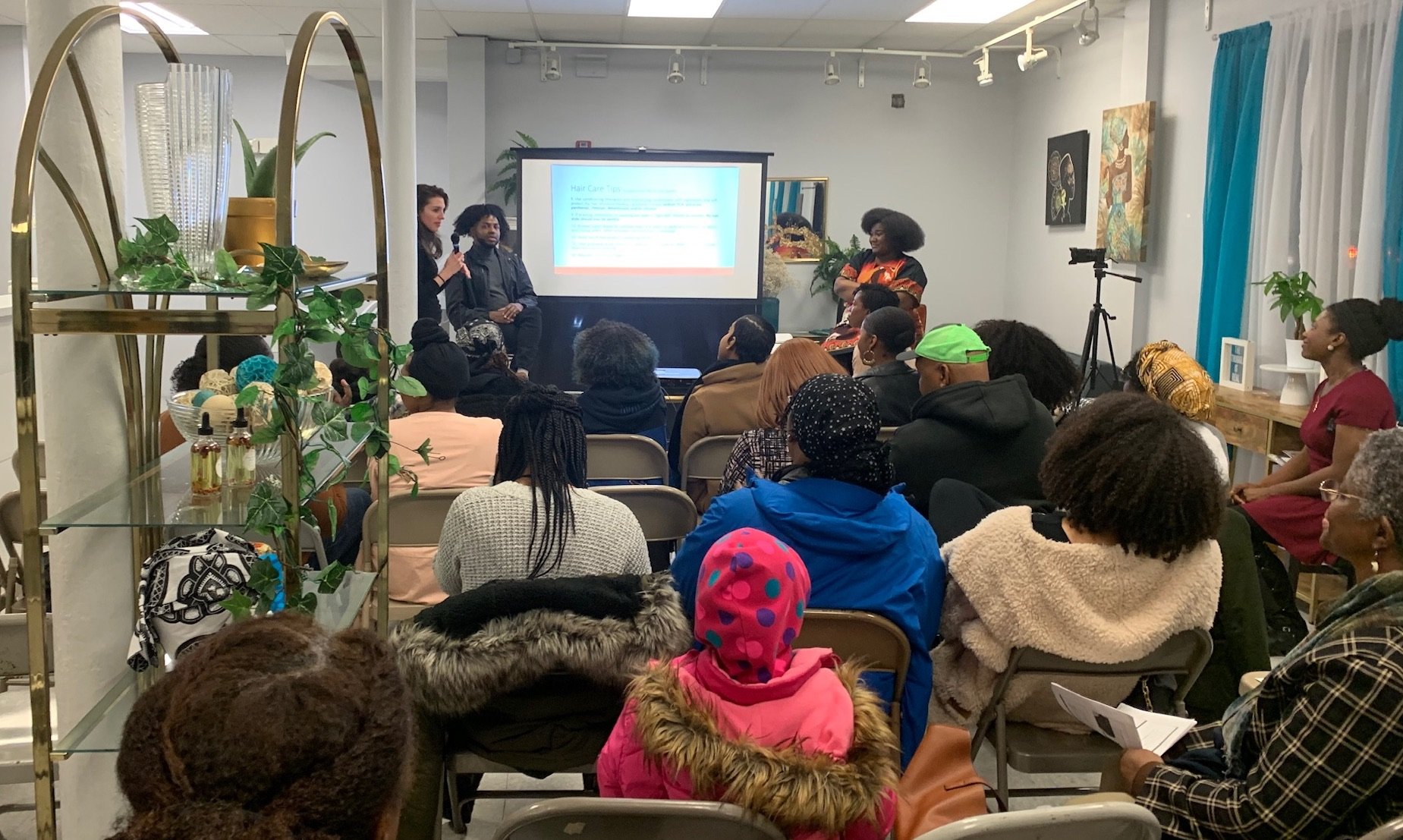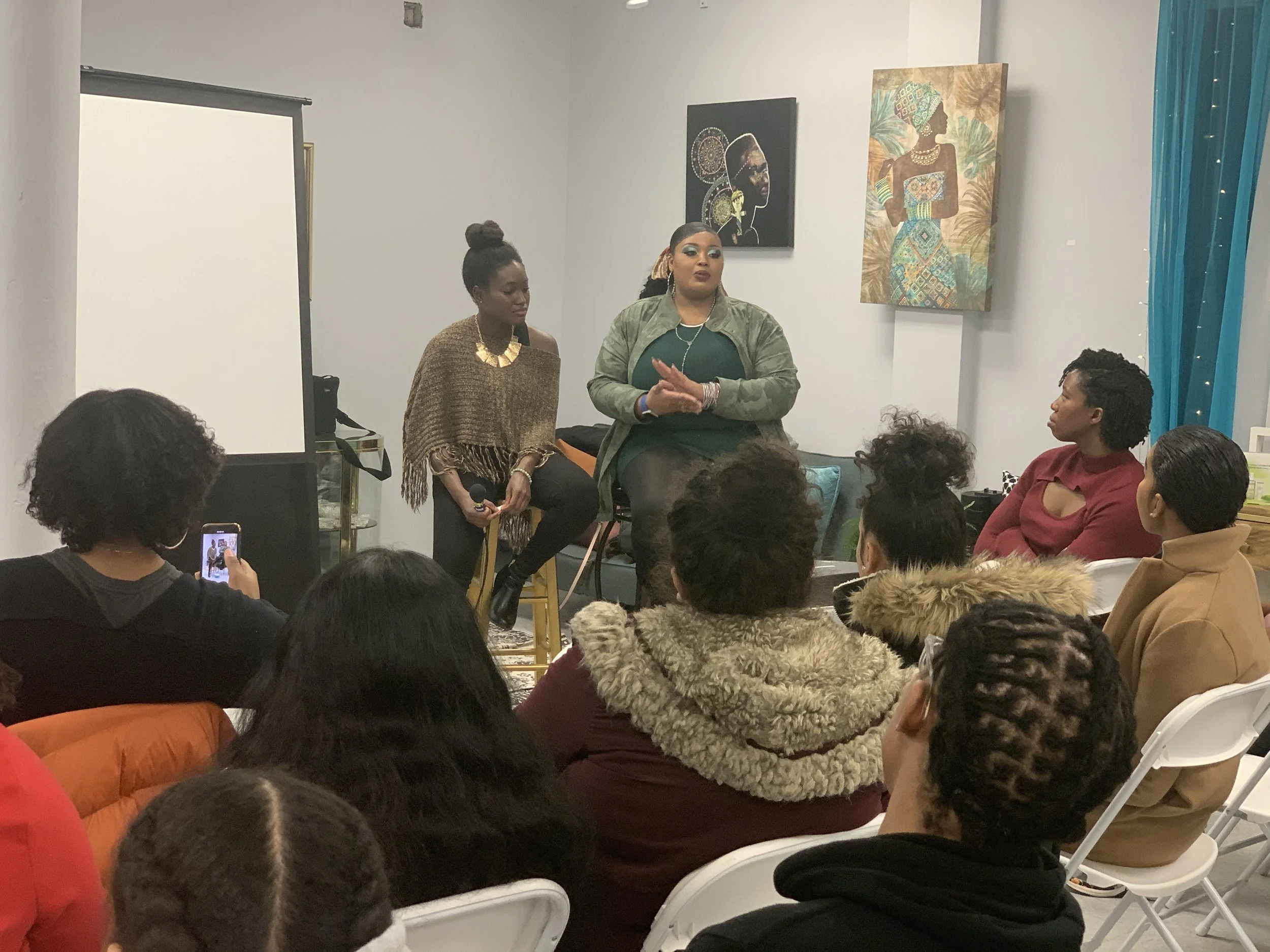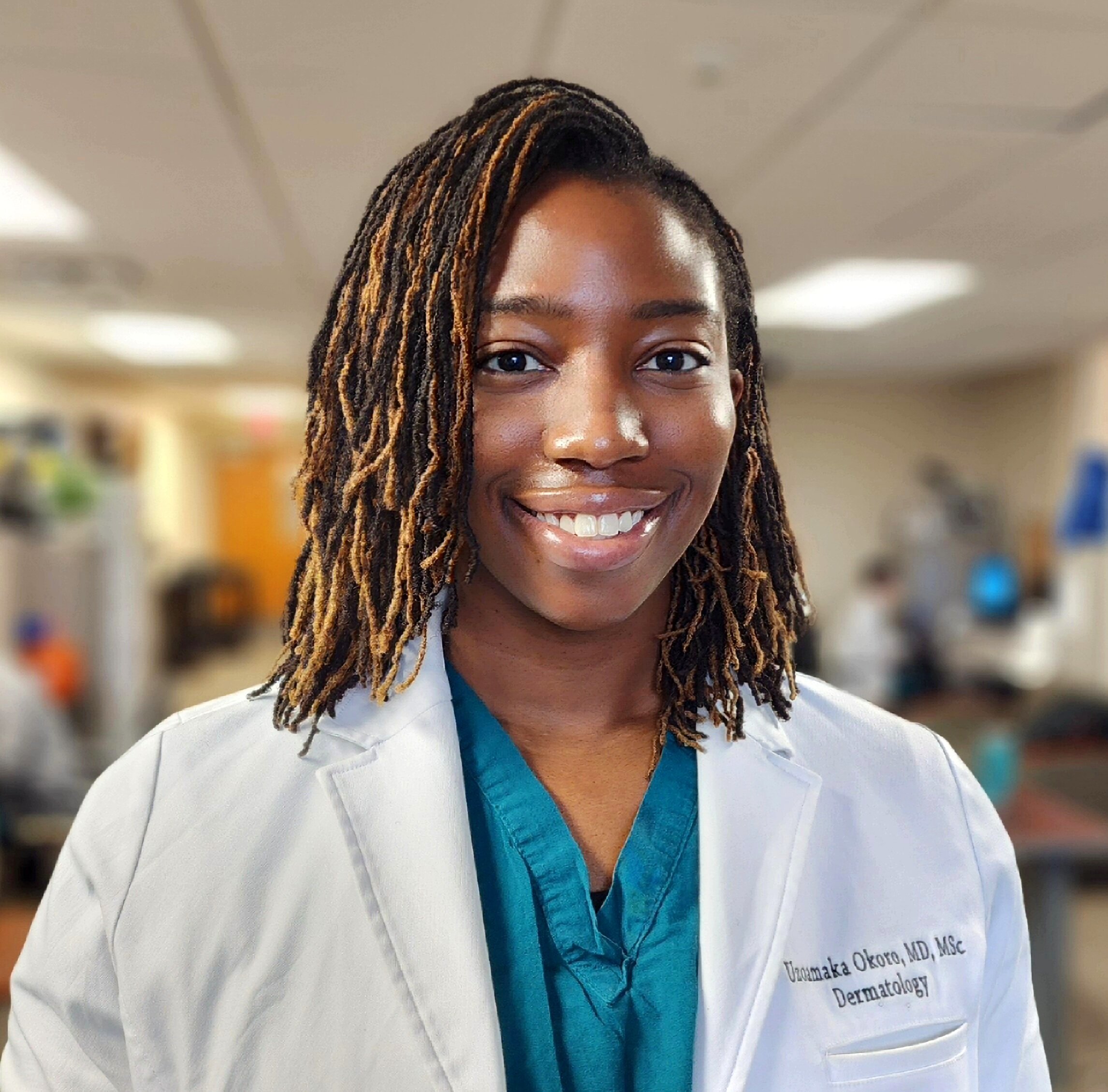
Bringing dermatologic knowledge to you through engaging community events.
Tell us what you want to learn about!
Our Mission
Skin of Color Community is a 501(c)(3) nonprofit organization dedicated to providing free, accessible dermatologic education to historically underserved people of color through engaging virtual and in-person community outreach events. We strive to build an inclusive communal environment and cultivate self-advocacy in healthcare.
Each event typically follows the outline below:
Begins with a brief 20-25 minutes presentation
Followed by a Q&A session with a panel of specialists -allowing for participants to ask questions or state concerns
Close with raffle of enticing products
From left to right — Helena Kuhn, MD, FAAD (board-certified dermatologist), WillOnAWhim (Youtuber/Natural hair influencer), and Rodlyne Louis, a natural hair stylist and the owner of BeauEssence Hair Salon, answer community questions during Q&A panel.
December 2019.
Due to the COVID-19 pandemic, we transitioned to virtual events and now have the opportunity to expand our outreach to an even wider community!
Our Values
We lead by listening – The goal of Skin of Color Community is to center our community members of color that have historically and for generations been marginalized in many avenues including the institution of medicine. Consequently, it is of upmost importance to center and serve our community –first by listening.
We excel with partnership – We strive to build strong relationships with underserved communities as well as break down the silos between academia, advocacy, and industry by seeking out impactful, diverse partners and stakeholders.
We inspire and mentor – Skin of Color Community promotes an atmosphere of mentorship and collaboration by developing the next generation of physician-advocates in dermatology and skin of color.
Uzo Okoro, MD, MSc
Skin of Color Community, Co-Founder & President
“Seeing participants come together and share, ‘I feel like I’m not being seen,’ ‘I can’t go to someone I feel comfortable with,’ and having others say, ‘Me too,’” Okoro says, “it felt like a little therapy session. It was really impactful, and it showed me that what we’re doing is valuable.”
Read More


